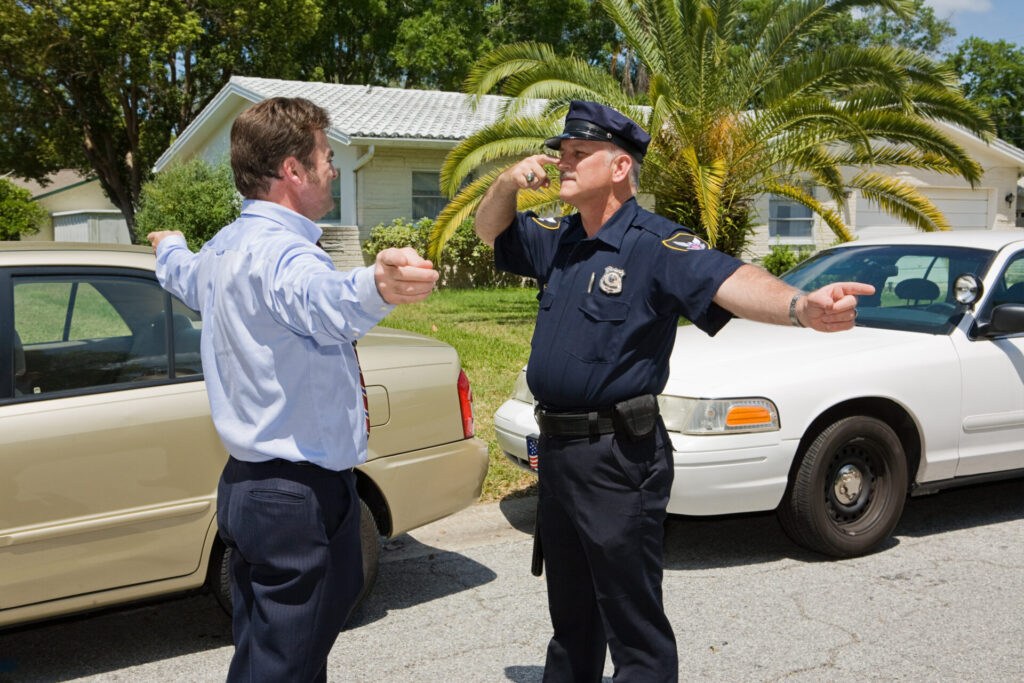If you’re charged with assault or with assault and battery in this state, you must be advised and represented by the right Massachusetts criminal defense lawyer. These are considered violent crimes, and convicted offenders may be sentenced to jail or prison.
What are the exact definitions of “assault” and “battery,” and how are these crimes dealt with by the Massachusetts criminal justice system? What are the penalties for convictions, and what should you do if you’re charged with assault or assault and battery?
Keep reading, because those questions are about to be answered, and if you are facing an assault or assault and battery charge, keep reading to learn what steps a Massachusetts assault attorney will take to defend you and to fight for justice on your behalf.
How Are “Assault” and “Assault and Battery” Defined in Massachusetts?
In Massachusetts, there is no criminal charge simply for “battery.” You could be charged with “assault” or with “assault and battery.” Assault is a different, separate crime from assault and battery. What constitutes assault?
- an attempt to use force against someone, or
- showing an intention to use force immediately against someone
Actually physically touching a victim is not required in order for an assault charge to be filed. Throwing a punch that misses is an example of the first kind of assault. Balling up your fist and aiming it at someone, even if no punch is thrown, is an example of the second kind of assault.

A victim must be deliberately, physically touched in a manner intended to cause bodily harm (and/or touched without the victim’s consent) in order for an assault and battery charge to be filed.
Are These Crimes Felonies or Misdemeanors?
Every assault or assault and battery is considered individually by prosecutors to determine if the charge should be a felony or a misdemeanor. However, assault and battery will probably be charged as a felony if:
- The victim sustained an injury that endangered his or her health, life, or welfare.
- The victim was vulnerable or in a protected victim category.
- A restraining order or an order of protection was violated.
- The defendant has a criminal record.
- The assault and battery was committed to further another felony.
Who Are “Protected” Victims?
An assault or an assault and battery against our state’s most vulnerable victims will probably be charged as a felony, and a conviction for an assault or an assault and battery on one of these victims will result in harsher penalties.

Massachusetts law offers enhanced protection to these victims:
- an assailant’s family or household members
- elderly or disabled persons
- emergency medical technicians and ambulance drivers and attendants
- expectant mothers
- law enforcement officers
- medical providers
- minors under age 14
- public employees performing their duties
What Penalties May Be Imposed for Assault or Assault and Battery Convictions?
When assault or assault and battery is charged as a felony, a judge may order up to 5 years in a Massachusetts state prison for a conviction when:
- The crime caused serious bodily injury (or any bodily injury to a minor under age 14).
- The assailant was aware or should have been aware the victim was pregnant.
- The assailant violated a restraining order or an order of protection.
- The victim of the crime was disabled or was 60 years old or older.
- The defendant has a previous assault conviction linked to domestic violence.
If serious bodily injuries were suffered by a law enforcement officer, a disabled or elderly person, or a child under age 14, the sentence may be increased to 15 years.
Assault with a deadly weapon is punishable with a 10-year sentence upon conviction, or 15 years if there was serious bodily injury or the defendant was in a protected victim category.
Assault by drugging may be punished upon conviction with a 10-year sentence. If the assault was followed by battery, the sentence may increase to 15 years. Assault with intent to rape is punishable upon conviction with as much as 20 years, or in some cases, life in prison.
Are There Minimum Sentences for Assault and Assault-Related Crimes?
Massachusetts imposes minimum mandatory sentences for some of these crimes, including:
- If the victim was a government worker, healthcare worker, emergency medical technician, or ambulance crew performing their duties, the minimum sentence is 90 days in jail.
- If the victim was an on-duty law enforcement officer who sustained serious bodily harm, the minimum sentence is a year in jail.
- If the victim was 60 or more years old, and if the conviction is a second conviction for assault with a deadly weapon, the minimum sentence is 2 years behind bars.
- If the crime was perpetrated to collect on a loan, the minimum sentence is 3 years in prison for the first offense and 5 years in prison for the second offense.
The legal penalties are not the only penalties for an assault or assault and battery conviction. If you have a professional license, you may expect your professional licensing board to take disciplinary action. If you’re not a U.S. citizen, a conviction could trigger a deportation hearing.
When Is Assault Domestic Violence?
An assault or assault and battery is domestic violence when the purported assailant and victim are:
- related by blood or marriage
- parents of the same child
- dating or living in a cohabitation relationship

Massachusetts prosecutors do not drop domestic violence charges merely upon a purported victim’s request. In fact, Massachusetts law enforcement officers may arrest a suspect at the scene if they know or reasonably believe that an incident of domestic violence has occurred.
What Else Should You Know?
If you are arrested and charged with assault or assault and battery, be as cooperative as possible and do not resist the police, but insist firmly on your right to remain silent and your right to have your Massachusetts criminal defense lawyer present for questioning.
Usually, a defense lawyer’s first step is trying to have the charge against you dismissed or dropped entirely, but when that isn’t possible, your lawyer will take your case before a jury and ask jurors to acquit you.
However, if the case against you is conclusive and your conviction is inevitable, your Massachusetts assault attorney may still negotiate on your behalf for reduced or alternative sentencing.
Assault and assault and battery are serious charges. A conviction could damage your future, hurt your family, or even take your freedom away from you. If you’re charged with assault or with assault and battery in Massachusetts, seek a defense attorney’s help immediately.






